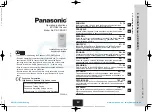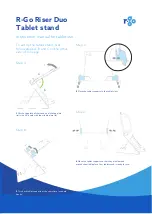
146
Eaton Power Xpert 9395 UPS Installation and Operation Manual 164201725—Rev 15
Figure 95. Path of Current through the UPSs in Bypass Mode – Distributed Bypass
Main Power Flow
UPS 1
UPS 2
UPS 3
UPS 4
Output to
Critical Load
Battery
UPS Input
Tie Cabinet
UPS 1 Output
Bypass Input
UPS 2 Output
UPS 3 Output
UPS 4 Output
Battery
Battery
Battery
Closed
Open
Breakers
The distributed bypass system can be transferred from Online mode to Bypass mode manually. However, the
distributed bypass system automatically switches to Bypass mode whenever the UPSs can no longer supply
the critical load. If the distributed bypass system transfers to Bypass mode from Online mode due to an output
voltage deviation, the distributed bypass system automatically attempts to return to Online mode (up to three
times within a 10–minute period). After three transfer attempts or an overload, the system locks the critical
load to the bypass source and requires operator intervention to transfer.
Bypass mode is a normal operating mode, not an alarm condition. However, if the distributed bypass system is
unable to return to Online mode following an automatic transfer to Bypass mode, an alarm condition is
recorded.
Bypass may also be used when the UPSs or UPMs in the system must be shut down to perform routine
maintenance or repairs.
In the Parallel Redundant (N+1) arrangement, the bypass circuitry in each UPS operates to support the applied
loads on bypass. If the UPSs are online and one UPS trips offline, the remaining UPSs do not go to bypass as
long as they have the capacity to support the load.
In the Parallel Capacity (N+0) arrangement, if one UPS trips offline and goes to bypass, the remaining UPSs
also go to bypass.
Summary of Contents for Power Xpert 9395
Page 8: ......
Page 269: ...16420172515 164201725 15 ...
















































